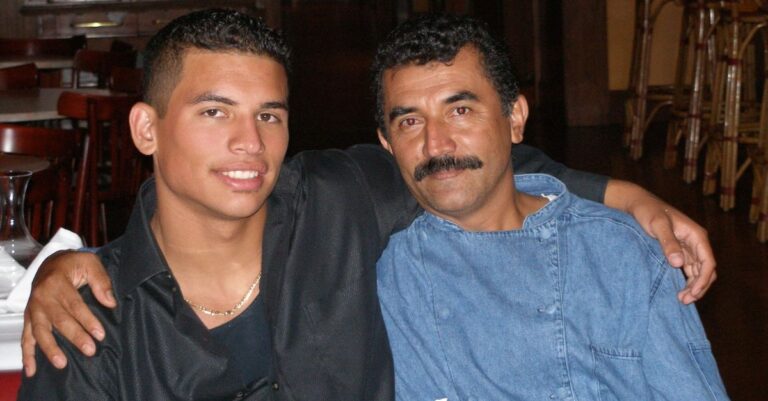What challenges in your life have you overcome? How have those experiences impacted your life? Each one of those experiences can be crafted into a resilience story that belongs to you.
Resilience is the ability to rise above adversity and adapt to difficult situations. Your resilience story is a narrative about obstacles you’ve overcome, strategies you used to overcome those obstacles, and lessons you took away from the experience. Knowing your resilience story can come with powerful benefits.
Importance of a Resilience Story
Everyone has at least one resilience story that’s all their own. A resilience story isn’t something you write down once and never look at again. It also isn’t something that you have to reference every day. It is a narrative that is there for you when you need it. A resilience story is there to remind you that anything is possible.
One of the most important parts of a resilience story is the act of writing it down. By writing it down, you are forcing yourself to reflect on and process all the important aspects of your story. Usually, people come up with new realizations while they are writing down their story.
Here are three other benefits that come with a resilience story:
- It reminds you of what you’ve already overcome and accomplished. You can easily gloss over achievements in your life if you don’t take the time to process what it took to get there.
- It gives you a vehicle by which you can connect with others. People are more likely to feel a connection with you if you are vulnerable with them. A resilience story where you talk about the ups and downs of a moment in your life can provide that vulnerability.
- It grounds you to what’s true to you. There’s a lot you learn about yourself when reflecting on challenges you’ve faced in your life. Oftentimes, this is when you are your most authentic self.
Crafting Your Resilience Story
Putting together your resilience story doesn’t have to be a laborious task. In fact, all you have to do is answer a couple of questions.
- What obstacles have you overcome in your life? You can reference your personal life or career.
- What background knowledge is important to understand the obstacles you overcame?
- How were you successful or unsuccessful in overcoming those challenges?
- What strategies did you use when facing those challenges? What worked and what didn’t?
- What lessons did you learn from overcoming those obstacles?
To give you a sense of what it looks like when it’s all put together, here’s one of my resilience stories.
My Resilience Story
News of a Lifetime
In the spring of 2005, I received some of the most exciting news possible. All told, I opened 10 envelopes with acceptances to every college I applied to! As the son of Salvadoran immigrants who didn’t get to attend college, this was a powerful moment not just for me, but for my entire family.
I didn’t have any college counselors, didn’t visit any colleges before I applied, and didn’t do any research on any of the colleges I applied to. The only support I received to complete my college applications came from my best friend who was attending a private school in New York City.
Academic Struggles
When I started school in the fall of 2005 at Harvard University, I thought I had gotten past the hard part. Unfortunately, I couldn’t be more wrong. As soon as I started my classes, I realized that I wasn’t yet prepared to succeed at this level.
When I was in high school, I had months to read a book, but I was asked to finish one within weeks during that fall semester. This turned out to be a trend during my first two years of college. I didn’t have the appropriate study skills, discipline, or sufficient prior experience with rigorous work to perform at the level to be expected of students at Harvard.
Stunned by Culture Shock
On top of those academic struggles, I was dazed by the culture shock I experienced. Latinos made up 9% of all Harvard students, and low to middle-income Latinos made up an even smaller portion of the student population.
I didn’t realize how much of an impact these statistics would have on my experience in college until I started to see and hear how different my background was from so many of my peers. I heard about the 10 AP classes some took in high school, the companies others had already started, and the weekend getaways to Las Vegas for the affluent around me.
In my case, Spanish was my first language, I had rarely traveled out of my home state of New Jersey, and I wouldn’t have been able to afford college if it wasn’t for the generous financial aid package I received.
Weighed Down by Expectations
I grew up with the expectation that I needed to be successful to be able to support my family. Any failure I experienced would mean letting down my entire family. The academic struggles along with the culture shock I experienced compounded together to cause me to feel like I didn’t belong – like I was an outsider.
Not only did failure feel like an option, it felt like the inevitable destination. This feeling was debilitating and caused me to battle a serious bout of depression throughout my college experience.
Nothing Seemed to Work
At first, it seemed as though nothing would help me overcome the internal struggles I faced to find my place in this new world. I tried to focus on my studies, but saw my grades fall. I remember crying after leaving my first midterm for Statistics 101, because I left half the test blank.
When I looked to focus my effort on extracurricular activities, I found some success. But even that made things worse as I just added things to my plate. Although I felt lonely at times, I would try to avoid spending a lot of time with my friends, as I didn’t want to bring them down with me.
Turning It Around
There were two ways I was able to make some progress in battling my internal troubles, albeit on an infrequent basis.
- When I acknowledged that I needed to get my mental health addressed, I started seeing a therapist and slowly began to see gains. It meant a lot to hear that my struggles weren’t unique and that there were others who had overcome similar experiences.
- I looked to mentors for guidance and support. There were a number of older guys who did so much to pick me up and set me on a brighter path. I owe a lot to the Black and Latino male upperclassmen who took me under their wings and helped me see what I might look like in a few years.
Failure Was Not an Option
Regardless of how I felt on the inside, I knew I could never give up. Failure seemed like a real possibility, but I was determined to find a way forward. I needed to get more strategic about the work I was putting in.
I switched my major because I realized I wasn’t interested in Economics and went into Social Anthropology because of the true interest I found in the content matter. This helped me see that taking action to control my situation is a powerful way to change my outlook.
I also co-founded an organization for Latino males on campus called the Latino Men’s Collective to be able to provide young Latino men at Harvard with a brotherhood to support and bond with one another. This helped me find a greater purpose in my place at college and ultimately helped set a foundation for a purpose that’s guided me to this day.
Being In Tune With Myself
Although I did see some success early on, I still view my first two years of college as one of the darkest moments in my life. There are still moments when those dark feelings start to come back, but I have learned to pick up on signs that help indicate when I’m headed down a negative path. Here’s what that looks like:
I start to feel physically and emotionally exhausted. I’m not motivated to do anything but stay on my couch and watch TV. The to-do list that I maintain on a regular basis gets thrown aside, as I try to hide from any and all responsibilities I have. I also want to stay away from everybody – friends and family included.
Resilience Lessons
I’ve learned to act as soon as any of these negative symptoms hit. The theme behind these strategies is: control. Everything I do involves taking control of my situation.
- One of the most important refueling tools I use is exercise. I work hard to exercise on a regular basis so it remains a habit. At some points in my life, I’ve gone on running or biking streaks, and at other points, I’ll spend my time in the gym. Not only do the endorphins lift me up, but I also feel a sense of accomplishment for working on myself that day.
- I’ll also start to create and work through realistic to-do lists. The realistic part is key! It’s defeating to end the day with tasks I couldn’t complete or even start. My to-do list needs to have items that I can get through in a few hours or a day. It’s powerful to experience the success I feel after crossing off items on a to-do list.
- When I start feeling negativity, it’s also a sign to share positivity. Even if I’m feeling lonely, sad, or wanting to keep to myself, I strive to share positive thoughts with others. I’ll think about who I’m grateful for and why, or think about an accomplishment a friend recently had. Then, I’ll share it with them. It feels good to think positively about others and to get their reactions as well.
Closing Thoughts
Knowing your resilience story reminds you that you are more resilient than you ever think you are. It reminds you of what you have already accomplished in your life and how far you have come. It reminds you that your struggles make you who you are today and will teach you valuable lessons along the way. A resilience story is not just something to pen down once–it is something to constantly reference throughout your life.
Time to Commit
What is your resilience story?
When did you overcome a great challenge that helped define who you are?
How can knowing your resilience story help you?



